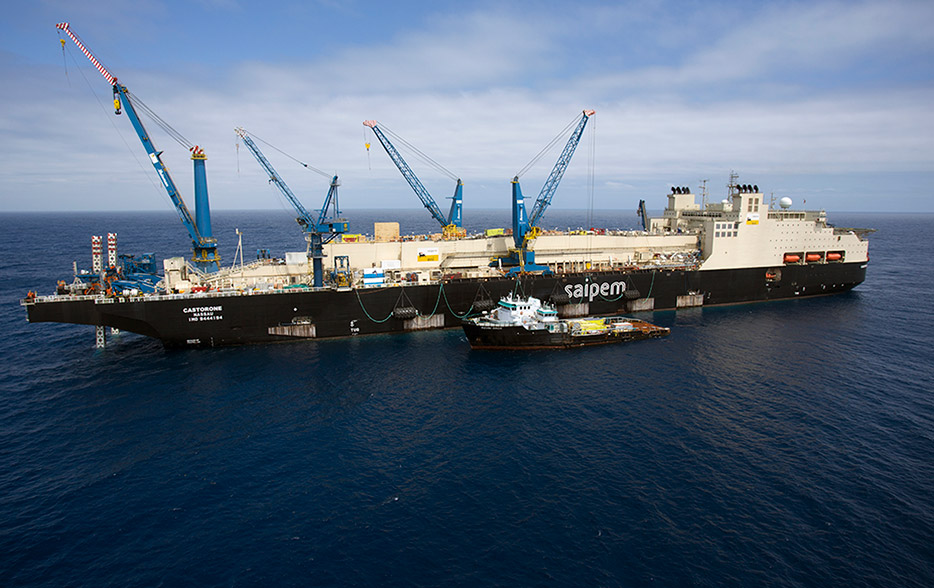
Eni and Saipem sign MoU for the use of renewable fuels on naval fleet
Eni Sustainable Mobility and Saipem have signed a Memorandum of Understanding (MoU) with the aim of employing biofuels on Saipem’s drilling and construction naval vessels, with particular attention to operations in the Mediterranean Sea. Saipem has a global fleet consisting of 45 vessels for construction and drilling.
The MoU represents an important milestone for Eni and Saipem, confirming the mutual commitment to diversifying energy sources and to reducing the carbon footprint across offshore operations.
Eni has been producing biofuels since 2014, thanks to the conversion of the Venice and Gela refineries into biorefineries, which have been palm oil free since the end of 2022. Through the proprietary Ecofining™ technology, vegetable raw materials or animal waste and HVO (Hydrotreated Vegetable Oil) biofuel products are processed. Biofuels are one of the pillars of Eni’s strategic plan to achieve carbon neutrality by 2050, through a decarbonisation process that aims to reduce emissions from industrial processes and products.
This agreement forms part of the execution of Saipem’s strategy for the reduction of GHG emissions and implements, together with the other initiatives and investments envisaged in the Group’s strategic plan, which encompasses the reduction of its Scope 1 and Scope 2 emissions by 2035 and the achievement of Net Zero (including Scope 3) by 2050.
This agreement will leverage the experience and expertise of both partners. Eni Sustainable Mobility, among the first producers of biofuels in Europe, brings its global expertise in providing solutions to reduce carbon emissions. Saipem, through its commitment to the energy transition, aims to increase the use of alternative fuels on its vessels so as to immediately reduce its own emissions and those of its clients.
Thanks to the use of biofuel, Saipem will potentially be able to reduce emissions by around 550,000 Tonnes of CO2eq per year, equal to 60% of its total annual Scope 1 emissions.
Information Source: Read More “
Energy Monitors , Electric Power , Natural Gas , Oil , Climate , Renewable , Wind , Transition , LPG , Solar , Electric , Biomass , Sustainability , Oil Price , Electric Vehicles,

